I'm using profiler in Spyder IDE to profile a simple program. One of the functions, make_geology is the piggiest part of the code. It appears to use 24.7 time units (are they seconds?). But when I look at all the calls made from within make_geology (everything I've highlighted in yellow), that sum of time only adds up to 1.3 time units.
Am I misundertanding the measurement and allocation of time spent in functions? I would have thought time spent in make_geology = sum of time spent on all the things inside make_geology


